Feeling Like Myself Again
Feeling Like Myself Again
Mental illness wrecks you. You feel like a shell of yourself, constantly in a daze. It’s terrifying when you think about it. In an effort to find myself again (er, maybe to create myself for the first time), I’m compiling a list of things I love, things that make me feel like me, things I know are no good for my mental health, and things that make me feel fake. This is an ever-evolving list, so stay tuned.
| Things I love |
1. Running—not fast, just simply putting one foot in front of the other. Occasional weightlifting.
2. Weddings. Check out my Pinterest board.
3. Planning, being organized, sticking to a schedule.
4. Traveling. Road trips, backpacking, hiking, camping. Taking flights, dressing the part, finding the perfect outfit to roam around a city in, gathering inspiration from people-watching, creating new goals based on lifestyles I see.
5. Hawaii. Literally everything about it. The relaxed vibes, the *mostly* constant sunshine, the waves, the vivid hues of the water. The food, the coffee, the adventure, the lifestyle. Oh, and it helps that there is a military base for every branch on Oahu ;).
6. Learning and problem solving. Reading nonfiction books about topics and people. Using the NT part of my personality (ENTJ). The feeling of accomplishment when I solve something challenging.
7. Nutrition. The science, the creativity, the recipes.
8. Eating clean. Little sugar, lots of fruit and nuts, whole grains.
9. Fandoms. Star Wars, Doctor Who, Harry Potter, etc.
10. Outer space. Complex theories. Technology. Fierce debates.
11. Concerts. Symposiums. Expos.
12. Shopping. Finding steals. Buying myself and others little treats just because.
13. Exploring cities—the neighborhoods, the shops, the bakeries/restaurants.
14. Daydreaming. Writing down ideas for businesses, inventions, my personal life, etc.
| Things that make me hollow |
1. Partying. I do enjoy hanging out with friends and playing competitive games, but drinking makes me sick. Being out till 2 am makes me sick. Pretending to be someone I’m not in order to fit in makes me sick.
2. Going to the gym every single day of the week and feeling worthless and disgusting if I don’t.
3. Hiding my more feminine side to blend in with the guys in my major/field of work.
4. Hiding my more daring, badass side to blend in with the girls in my sorority.
5. Not having a routine sleep schedule.
6. Excessive scrolling on Instagram. Comparing myself to other girls. Not embracing myself.
7. Putting far too much face value on how I look, the stretch marks I have, the shade of my skin, my frizzy hair, my red blotches or blemishes on my face, the fact that my thighs touch, the fact that I’m naturally curvier than most girls.
8. Being excessively spontaneous and never having a plan.
9. Drinking too much coffee. Like 3+ cups per day.
10. Hanging out with people I don’t enjoy just so I won’t be alone.
11. Being a “yes” girl. I cannot emphasize this enough. Say no. Take care of yourself. You don’t have to be in charge of everything or even part of everything. Do. Not. Spread. Yourself. Too. Thin.
12. Being lazy. Not kickstarting my day early.
More Posts from Ship-happenss and Others
All the Ways Your Rich Friends Will Not “Get It”
I’m a kid from a blue-collar, working-class background, doing my master’s degree at an Ivy League school. I’m incredibly grateful to be here, and I fully understand that this is an opportunity most people of my upbringing never get to have. Not everyone here is from a rich background - there are other working-class kids, getting by on loans, scholarships and part-time jobs. But for the most part, the people around me grew up very differently than I did, and although I love my friends, there are things about my life and my college experience that they’re just never going to get. Things like:
Money can buy good grades. My wealthier friends aren’t slipping the TAs a wink and a $100 bill on their way out of the midterm, but being wealthier does make it easier to earn better grades. I have to work a part-time job in order to afford my rent, while my rich friends are abstaining from work so they can focus on school. That’s 20 hours per week that they can spend on school, while I’m at my job. Our school is in a neighborhood in Manhattan that I can’t afford to live in - I’m spending at least ten hours per week commuting, while they live steps from campus. That’s all extra time that they can spend studying, or just relaxing and getting the sleep they need to be mentally alert. Many of my friends pay to have a laundry service pick up their dirty laundry and bring it back clean and folded (which is common in NYC). I can’t afford this, so instead I spend hours lugging laundry up and down five flights of stairs, because I can’t afford to live in a building with an elevator. I cook and prepare my own meals, they eat mostly takeout. And so on, and so forth. My life is filled with hours of work, chores and annoyances that they don’t have to deal with, and all of it cuts into my time. We may be taking the same classes and doing assignments that are the same difficulty, but I’m going in with a 40-hour per week handicap that they can afford not to have.
“Follow your dreams” is a risk some of us can’t afford to take. My old roommate spent long hours agonizing over whether she wanted to major in art history or creative writing. For me, that would be like asking if I preferred a pet dragon or a unicorn. My biggest passion in life is fiction writing, but I can’t justify spending tens of thousands of dollars to study it - I’m paying for my education by myself, and I had to choose a field that would let me make enough money to pay back my student loans and afford my own rent after graduating. My friends can focus on the things that really interest them, without worrying about future career prospects. A lot of them are using their college years to “find themselves” and plan to take some time off to travel the world or work on their art after graduating. Many of them have parents with connections in hard-to-access industries like fashion, publishing, television, or the art world. They can take unpaid internships and go for their shot at a one-in-a-million dream job - if it doesn’t work out, they can move on to something else, no harm done. If I put tens of thousands of dollars into being an author and it doesn’t pan out for me right away, I’m in deep shit. I’m happy for people who are able to follow their true passions, and I wish more people were able to do so without fear, but I’m tired of the pitying looks and condescending lectures I get when I tell my friends why I’m not in school for my greatest passion. I didn’t make that decision because I’m boring, or because I don’t believe in myself hard enough - I made that decision because my parents co-signed on all my student loans, and they could lose their house if I can’t find a job.
Your “funny mishap” is my “life-changing disaster”. My friends talk about the time that they accidentally got drunk and spent all their rent money at a strip club, or the time that they slept through their final and had to re-take a class. For them, these are funny stories. For me, this would be a life-defining catastrophe that could change the course of my 20s and beyond. If I blow all my rent money, I can’t call my parents to beg for more - I could get evicted, or ruin my credit score. Best-case scenario, I’d probably have to take on so many extra hours at work that I could barely finish my schoolwork. If I sleep through a final and fail a class, I will lose my scholarship and be unable to complete my degree. To my friends, I come across as uptight and overcautious, but I don’t have a choice. The same mistake carries much greater consequences for me than it does for them, and they have a hard time understanding that. I wish that I could be carefree about money, and laugh about accidentally getting drunk and spending $500 on Amazon, but I can’t. It can be hard to tell the difference between “oh shit, this really sucks” and “oh shit, I’m going to be dealing with the consequences of this for years” when you’ve never been on the latter end of the spectrum. Again, I love my friends, and I’m happy that they don’t have to have these stresses in their lives, but it’s hard when they attribute my cautiousness to a personality flaw, and not to the financial reality of my life.
Having no safety net is more stressful than you can imagine. Many of my friends insist that they aren’t really rich - rich people own private jets and private islands and party with celebrities, while their parents just own a modest condo in Manhattan and a sensible vacation home in Connecticut. They’ve grown up around people who are much richer than they are, and they’ve come to think of themselves as middle-class, even though many of their parents easily make double or triple the federal upper boundary for the middle class. But they don’t have unlimited money. They don’t have their own 6-figure bank accounts or unrestricted use of Daddy’s black credit cards. If they run out of money, they will have to call home and ask for more, which will be awful for them - their parents will probably yell at them, and make them feel shitty, and give them a huge unwanted lecture about responsibility. It could have a huge toll on their mental health, and that really sucks. But if I run out of money, I’m just kind of screwed. My parents cannot help me, even if they desperately want to. The best they can do is let me move into the guestroom of their home, in a desperately poor rural area where the best job available is cashier at the grocery store in town, because it pays $2 above minimum wage. I wouldn’t be homeless, but I would almost definitely default on my student loans, launch my credit score straight into the sun, and waste months or years trying to get back on my feet in an area with no opportunities. If my friends screw up, they have to face their parents’ scorn and disappointment. If I screw up, I have to face my entire life coming apart at the seams. Living with that constantly hanging over your head can affect your entire life, and it really does feel like you’re trying to walk across a tightrope dozens of feet up, with no net to catch you if you fall. Once again, I love my friends dearly, and I am grateful to have every single one of them in my life. They have made my life and my time at graduate school infinitely better with their humour, their wit, their friendship and their sympathetic ears. I am in no way blaming them for the way they grew up - they didn’t choose their lives any more than I did, and many of them appreciate how lucky they are. But there’s still a gulf between me and them, and it’s one that can be surprisingly difficult to cross. My rich friends love me, but they don’t understand me. They don’t understand that money isn’t just an aspect of my life - it shapes my entire life, for better or for worse, and I don’t have the luxury of forgetting that it exists for even a moment. My rich friends love me, and they try. But they just don’t get it.

INTJ Relationship goals




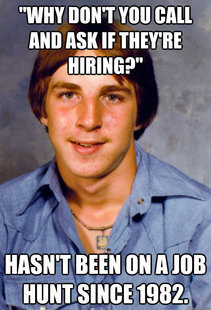
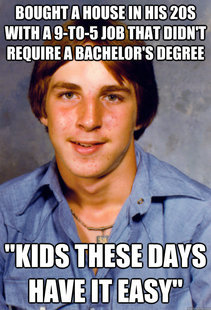

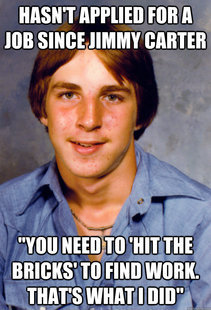
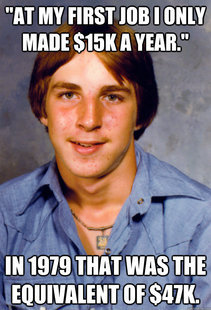

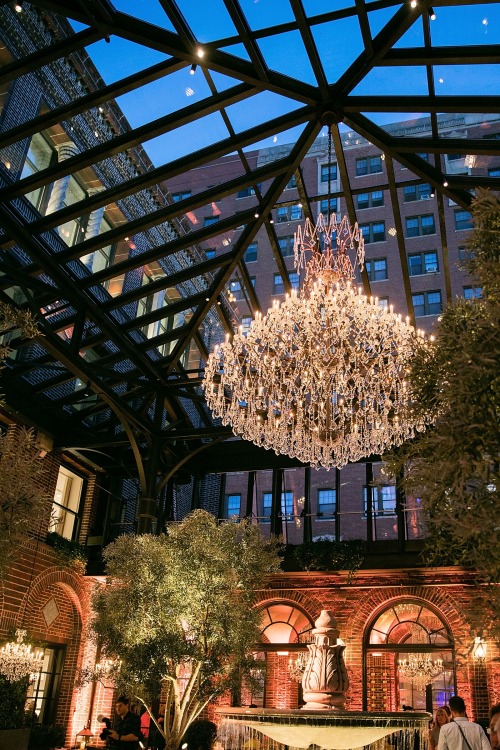

I’ve seen a lot of half-assed book trees.
THIS IS NOT ONE OF THEM.
Happy National Techies Day!
October 3 is National Techies Day…and here at NASA we have quite a few people who get REALLY excited about technology. Without techies and the technology they develop, we wouldn’t be able to do the amazing things we do at NASA, or on Earth and in space.
Our Techies

We love our techies! The passionate engineers, researchers and scientists who work on our technology efforts enable us to make a difference in the world around us. They are responsible for developing the pioneering, new technologies and capabilities needed to achieve our current and future missions.
Research and technology development take place within our centers, in academia and industry, and leverage partnerships with other government agencies and international partners. We work to engage and inspire thousands of technologists and innovators creating a community of our best and brightest working on the nation’s toughest challenges.
Technology Drives Exploration

Our investments in technology development enable and advance space exploration. We are continually seeking to improve our ability to access and travel through space, land more mass in more locations, enable humans to live and explore in space and accelerate the pace of discovery.
Techie Technology
Advanced Manufacturing Technologies
When traveling to other planetary bodies, each and every pound of cargo matters. If we can reduce the weight by building tools once we arrive, that’s less weight we need to launch from Earth and carry through space.

Additive manufacturing is a way of printing three-dimensional (3-D) components from a digital model. If you think of a common office printer, it uses a 2-D file to print images and text on a sheet of paper. A 3-D printer uses a 3D file to deposit thin layers of material on top of each other, creating a 3-D product.

Thanks to techies, we’re already using this technology on the International Space Station to print wrenches and other tools. Our Additive Construction for Mobile Emplacement (ACME) project is investigating ways to build structures on planetary surfaces using resources available at a given site.

Discover more about how our techies are working with advanced manufacturing HERE.
Technology Demonstrations
Our techies are always innovating and developing new cutting-edge ideas. We test these ideas in extreme environments both here on Earth and in space.
Science missions in space require spacecraft propulsion systems that are high-performance, lightweight, compact and have a short development time. The Deep Space Engine project is looking to meet those needs. Our techies are currently testing a 100lbf (pound-force) thruster to see if this compact, lightweight, low-cost chemical propulsion system can operate at very low temperatures, which allows long duration storage capabilities.
Another technology in development is PUFFER, or the Pop-Up Flat Folding Explorer Robot…and it was inspired by origami! This robot’s lightweight design is capable of flattening itself, tucking in its wheels and crawling into places rovers can’t fit. PUFFER has been tested in a range of rugged terrains to explore areas that might be too risky for a full-fledged rover to go.

With our partners at Ball Aerospace & Technologies Corp., we’ve also collaborated on the Green Propellant Infusion Mission (GPIM), which will flight test a “green” alternative to the toxic propellant, hydrazine, in 2018. GPIM is the nation’s premier spacecraft demonstration of a new high-performance power and propulsion system — a more environmentally friendly fuel. This technology promises improved performance for future satellites and other space missions by providing for longer mission durations, increased payload mass and simplified pre-launch spacecraft processing, including safer handling and transfer of propellants.
Find out more about our technology demonstrations HERE.
Aircraft Technology
What if you could travel from London to New York in less than 3.5 hours? Our techies’ research into supersonic flight could make that a reality!

Currently, supersonic flight creates a disruptive, loud BOOM, but our goal is to instead create a soft “thump” so that flying at supersonic speeds could be permitted over land in the United States.
We’re conducting a series of flight tests to validate tools and models that will be used for the development of future quiet supersonic aircraft.

Did you know that with the ability to observe the location of an aircraft’s sonic booms, pilots can better keep the loud percussive sounds from disturbing communities on the ground? This display allows research pilots the ability to physically see their sonic footprint on a map as the boom occurs.
Learn more about our aircraft technology HERE.
Technology Spinoffs
Did you know that some of the technology used in the commercial world was originally developed for NASA? For example, when we were testing parachutes for our Orion spacecraft (which will carry humans into deep space), we needed to capture every millisecond in extreme detail. This would ensure engineers saw and could fix any issues. The problem was,there didn’t exist a camera in the world that could shoot at a high enough frame rate – and store it in the camera’s memory – all while adjusting instantly from complete darkness to full daylight and withstanding the space vacuum, space radiation and water immersion after landing.
Oh…and it had to be small, lightweight, and run on low power. Luckily, techies built exactly what we needed. All these improvements have now been incorporated into the camera which is being used in a variety of non-space industries…including car crash tests, where high resolution camera memory help engineers get the most out of testing to make the cars we drive safer.
Learn about more of our spinoff technologies HERE.
Join Our Techie Team
We’re always looking for passionate and innovative techies to join the NASA team. From student opportunities to open technology competitions, see below for a list of ways to get involved:
NASA Solve is a gateway for everyone to participate in our mission through challenges, prize competition, citizen science and more! Here are a few opportunities:
Vascular Tissue Challenge
The Vascular Tissue Challenge, a NASA Centennial Challenges competition, offers a $500,000 prize to be divided among the first three teams that successfully create thick, metabolically-functional human vascularized organ tissue in a controlled laboratory environment. More information HERE.
For open job opportunities at NASA, visit: https://nasajobs.nasa.gov.
For open internship opportunities at NASA, visit: https://www.nasa.gov/audience/forstudents/stu-intern-current-opps.html
Stay tuned in to the latest NASA techie news, by following @NASA_Technology on Twitter, NASA Technology on Facebook and visiting nasa.gov/technology.
Happy National Techies Day!
Make sure to follow us on Tumblr for your regular dose of space: http://nasa.tumblr.com.
I love the overlap of science disciplines (coincidentally my two favorite ones)










City lights photographed from the International Space Station and Neurons imaged with fluorescence microscopy.
Source images; Cities (1) (2) (3) (4) (5), Neurons (1) (2) (3) (4) (5)
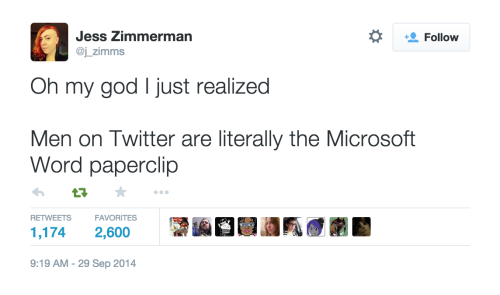
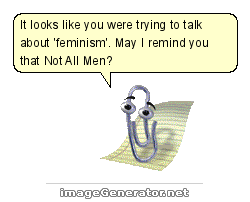
Slytherin aesthetic #2
Trembling candle light; rose gold iphone; tracing constellations; overflowing bookshelves; the breath you take after being underwater for too long; minimalism; greek mythology; komorebi (sunlight that filters trough the trees); fairy lights; black outfits; rare but significant hugs; sad books; philosophy; afraid of being average; watercolors; quotes written on wrists; smoking cigarettes; halsey lyrics; climbing ivy on the railings; the smell of air right before the storm; having pierced ears but not wearing earrings; being alone but not lonely; the smile you make after passing a test you haven’t studied for; large scarves; the brontë sisters’ books; breaking glass.

-
 ship-happenss reblogged this · 7 years ago
ship-happenss reblogged this · 7 years ago